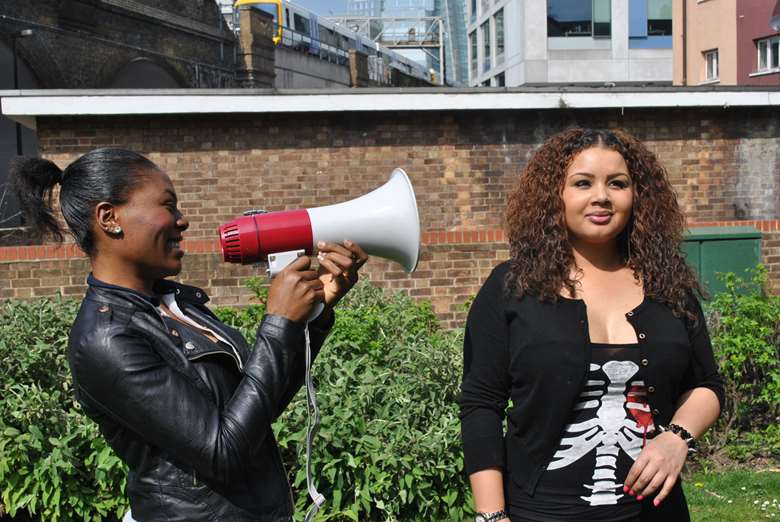Participation in Action: Young people find their voice to take control of life in care
Gabriella Jozwiak
Monday, April 29, 2013
Children in care can feel that they have little influence over important decisions affecting their lives. In 2005 the London Borough of Southwark decided to address this through a programme that gave looked-after children and care leavers a say.

Eight years on, that project – Speaker Box – is now independent from the council and run by young people who have made significant changes to local policies.
Many local authorities have children in care councils. But Speaker Box members say theirs is different because of the amount of sway held by the young members.
Jaimee Hendry, 22, is the Speaker Box project worker at Southwark Council and a care leaver who joined the initiative as a looked-after child. “We have support from social workers, councillors, managers, heads of service and all the way up to director level. Without that we would not be half as successful as we are,” she says.
Hendry’s position is one of two posts connected to the programme that are always filled by care leavers. Southwark also employs a care leaver who came through its apprenticeship scheme to support the Speaker Box group. Together, and with council support, they organise monthly group meetings to which any local young person in care or care leaver can attend.
The group also meets with the borough’s heads of service, the corporate parenting committee and senior managers in children’s services at least twice a year to feed back their opinions. Members are aged eight to 24 and usually has up to 10 members.
Since its creation, the group has worked on numerous projects to improve its relationship with the council. One of these is an annual survey of Speaker Box members about their care experiences called Tell Us How it Was, which has had a direct influence on the borough’s services.
Speaker Box’s 2011/12 survey suggested that young people sometimes had poor relationships with their social workers. This resulted in a training package called Understanding Us, and young people now deliver a training day for social workers several times a year.
“It is a workshop delivered by both looked-after children and care leavers, which allows professionals to feel what it’s like being a looked-after child for the day,” says Hendry. “Activities look at aspects including relationships, honesty and how professionals can build positive bonds.”
The council’s corporate parenting and independent reviewing officer groups have also attended half-day Understanding Us workshops.
Speaker Box’s 2011/12 survey also prompted the group to seek better services for care leavers and looked-after young people in the borough. They agreed a deal where all council-run leisure services offer all such young people free services.
Other initiatives include a magazine that reaches more than 700 children and young people in the borough. Speaker Box produces two versions for each school term, one for up to 12-year-olds and the other for older children, with all the articles written by local young people. Speaker Box also organises an annual awards ceremony to recognise social workers, personal advisers and foster carers who have made a real difference.
Speaker Box’s achievements were recognised by Ofsted as an example of national best practice in mid-April. It is an accolade that has encouraged Southwark Council to continue supporting the work of the young group.
“The council is committed to giving vulnerable people more control over their care and Speaker Box is a wonderful way for young people to do just that,” says Labour councillor Dora Dixon-Fyle, the cabinet member for children’s services at Southwark Council, which funds the project.
The group is currently working on how Southwark can provide more support to care leavers, particularly with financial and housing advice. It also wants to deliver more training for young people to ensure they know their rights.
“In care, from my experience, it feels like there are always many people – social workers, independent reviewing officers, managers, nurses, foster carers – making decisions about your life and taking control,” says Hendry. “Having Speaker Box gives some of that control and power back to children and young people. It allows them to influence and be involved in service decisions.”




